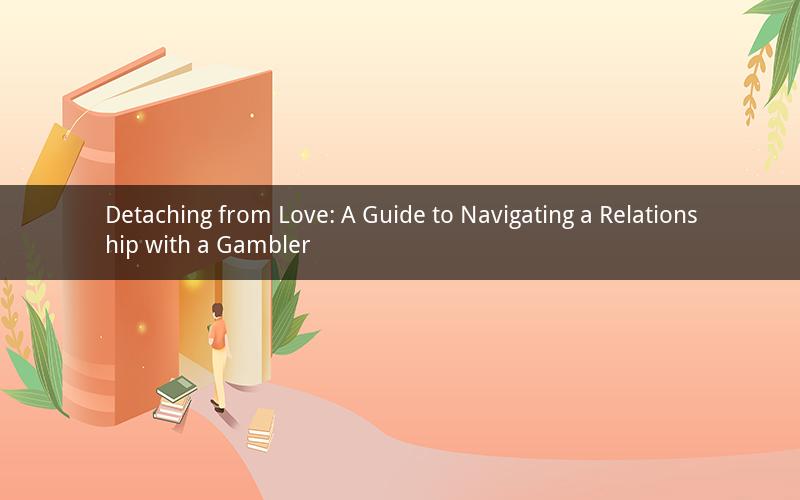
Navigating a relationship with a gambler can be challenging and emotionally taxing. Love and concern can often cloud judgment, making it difficult to detach from the situation. However, it is crucial to prioritize self-care and personal well-being while supporting your loved one. This article aims to provide guidance on how to detach with love from a gambler, focusing on self-reflection, communication, and seeking support.
1. Understanding the Gambler's Behavior
The first step in detaching from love is to understand the gambler's behavior. Gambling addiction is a complex disorder that can affect individuals emotionally, physically, and financially. Familiarize yourself with the signs and symptoms of gambling addiction to recognize when your loved one's behavior is a cause for concern.
Common signs of a gambling addiction include:
- Preoccupation with gambling, constantly thinking about it even when not engaged in the activity
- Lying about gambling activities, hiding debts, and spending habits
- Neglecting personal responsibilities, work, and relationships due to gambling
- Repeated unsuccessful attempts to stop or control gambling
- Escalating bets to sustain the excitement or recover losses
2. Prioritize Self-Care
Detaching from love involves setting boundaries for yourself and ensuring your well-being is a priority. Here are some ways to prioritize self-care:
- Set boundaries: Establish clear limits regarding financial support, communication, and other areas affected by the gambler's behavior. Communicate these boundaries clearly and assertively.
- Seek support: Surround yourself with a strong support network of friends, family, or support groups focused on helping loved ones with gambling addiction.
- Maintain your own interests and hobbies: Engage in activities that bring you joy and fulfillment, fostering a sense of self-worth and independence.
- Focus on your well-being: Prioritize your physical, emotional, and mental health by maintaining a healthy lifestyle, seeking therapy if needed, and practicing self-compassion.
3. Open Communication
Communication is key in any relationship, especially when dealing with a loved one's addiction. Here are some guidelines for open communication:
- Approach the conversation with empathy: Understand that your loved one may be defensive or resistant to change. Express your concerns and feelings with compassion and without judgment.
- Use "I" statements: Avoid placing blame on your loved one, as this can create defensiveness. Instead, use "I" statements to express your feelings and concerns.
- Focus on the present: Stay grounded in the current situation and avoid bringing up past grievances or guilt.
- Be prepared for resistance: Your loved one may be in denial or not ready to seek help. Remain patient and supportive, offering resources and encouragement without pushing too hard.
4. Encourage Professional Help
Encouraging your loved one to seek professional help is a crucial step in detaching with love. Here are some ways to approach this:
- Research treatment options: Gather information on gambling addiction treatment programs, therapists, and support groups in your area.
- Present the information calmly: Share the research you have found and explain the benefits of seeking professional help.
- Offer to support the process: Be there to provide encouragement and assistance throughout the treatment journey.
- Understand the recovery process: Be prepared for setbacks and understand that recovery from gambling addiction is a long-term process.
5. Practice Self-Reflection
Detaching from love is not solely about your loved one's behavior; it also involves examining your own role in the relationship. Consider the following questions:
- What are your expectations and needs in this relationship?
- How has the gambling addiction affected your well-being?
- What changes can you make to support your personal growth and well-being?
- Are you enabling the gambler's behavior by accommodating their needs at the expense of your own?
- How can you create healthier boundaries for yourself and your loved one?
Conclusion
Detaching from love while supporting a gambler can be a difficult and emotional process. However, by focusing on self-care, open communication, encouraging professional help, and practicing self-reflection, you can create a healthier and more balanced relationship with your loved one. Remember to seek support from friends, family, or support groups, and prioritize your well-being throughout this journey.